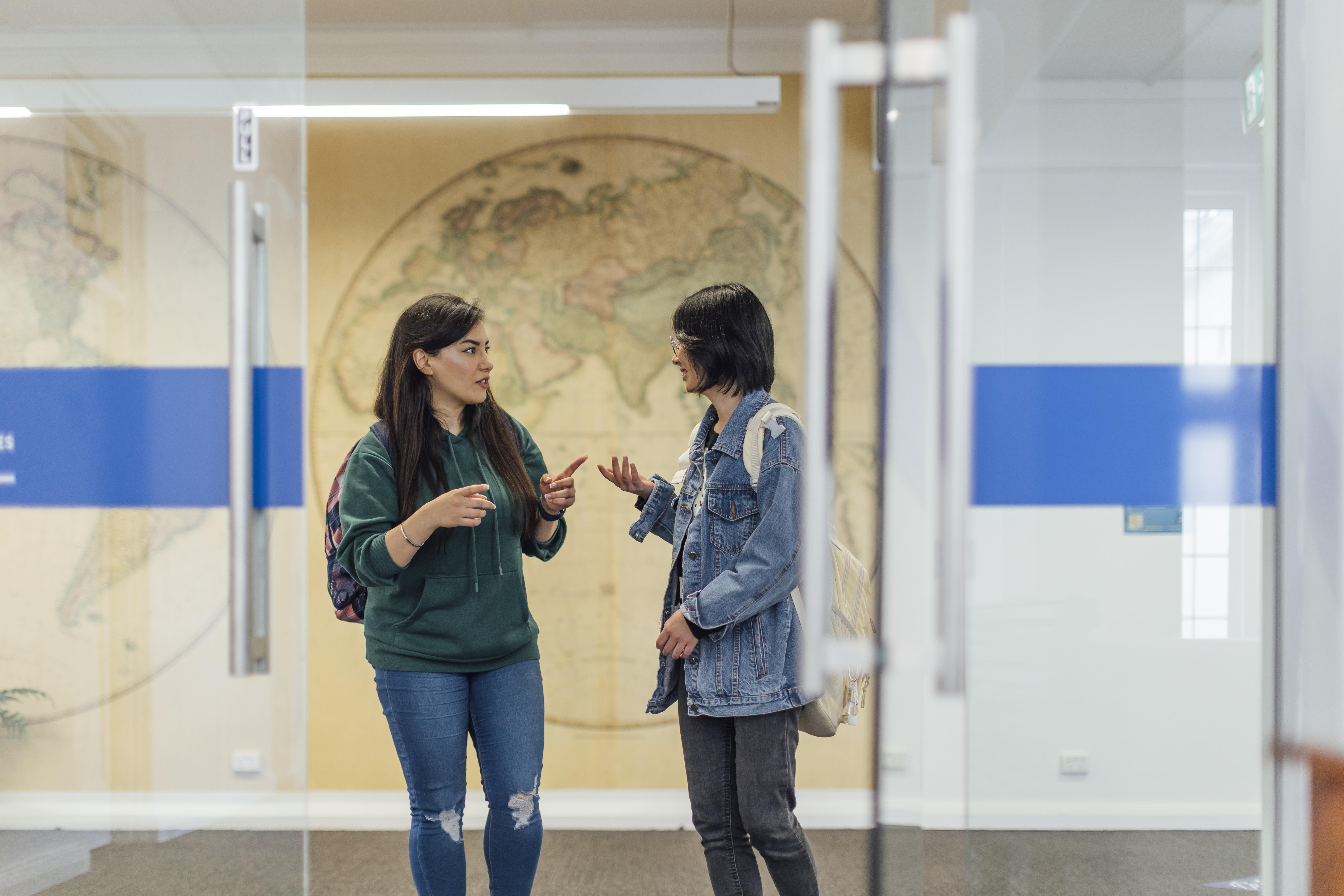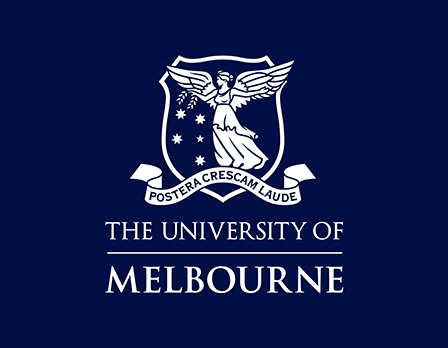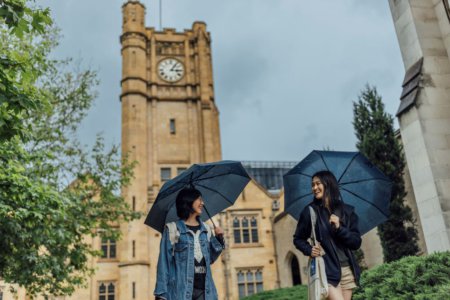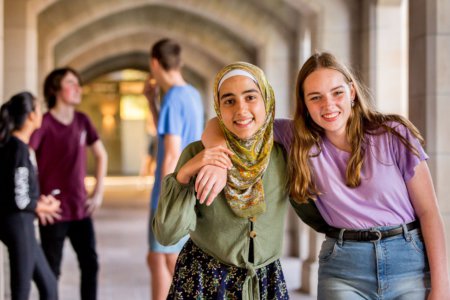Wenwen Yu‘s teaching career began nearly a decade ago. She helped students with the International English Language Testing System (IELTS) and Cambridge exams — standardised tests designed to assess English language proficiency for various purposes. In every lesson she led, she felt fulfilled, especially as her students grew more fluent.
But despite her success and satisfaction in this role, Yu started feeling a restless urge to do more and achieve more as an educator.
This pushed her to pursue a Master of Applied Linguistics (MAppLing) at the University of Melbourne. After graduating in 2022, Yu now teaches English to learners from diverse countries like Colombia, Thailand, Brazil, China, and Peru.
“My time as a student at the University of Melbourne was genuinely remarkable,” she says. “It was a period of profound learning, personal growth, and boundless inspiration. It was like stepping into a vibrant marketplace of knowledge where I could pick and choose the best strategies to nurture my students’ language skills.”
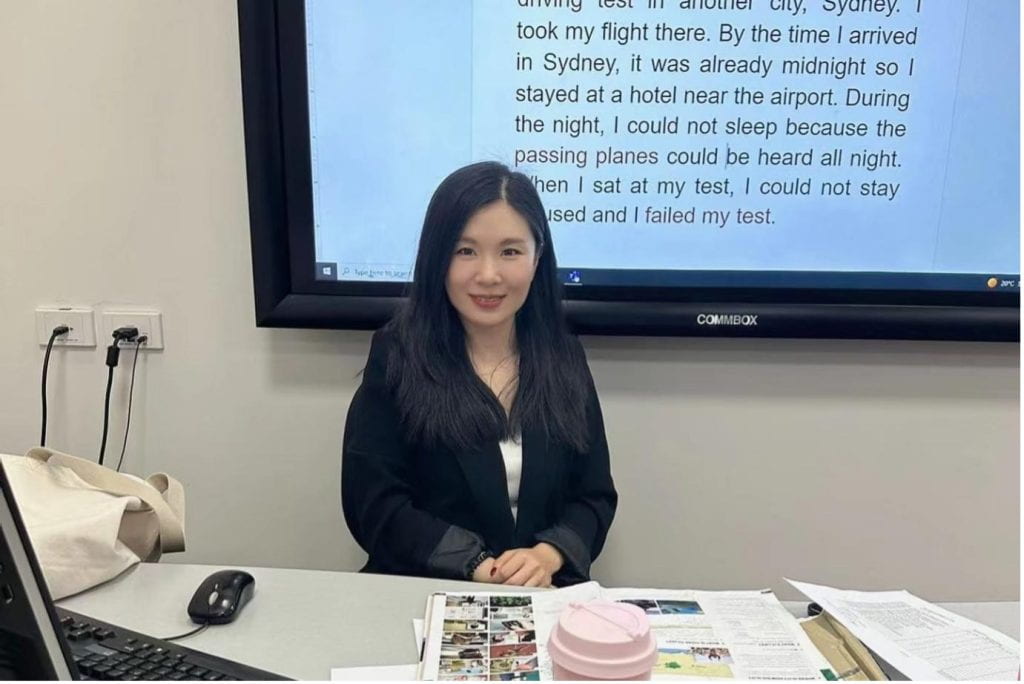
Master of Applied Linguistics graduate Wenwen Yu describes her time at the the University of Melbourne as one defined by “profound learning, personal growth, and boundless inspiration.” Source: The University of Melbourne
The University of Melbourne, ranked #13 in QS World University Rankings 2025, is home to the School of Languages and Linguistics (SOLL). In the QS World University Rankings by Subjects 2024: Linguistics and Modern Languages, SOLL holds the top spot for both discipline areas in Australia. The city the School calls home is one of the world’s most multicultural cities, with around 50% of its residents born overseas, representing over 200 cultural backgrounds.
This is also reflected in the MAppLing. The programme draws advanced learners from around the world, with about 80% of students being multilingual and many having extensive experience in language studies or teaching. This enriches the learning experience, with students sharing pespectives in the classroom.
“Melbourne itself is very diverse linguistically, but the MAppLing is especially diverse in terms of its student cohort,” says Associate Professor Chloé Diskin-Holdaway. “That really gives students a lot of opportunities to make connections between the material that we cover and their own experiences.”
The MAppLing is a favourite among graduates for helping them unlock various career opportunities. The programme blends insights from SOLL’s English as a Second Language (ESL) programme, making it a great choice for English educators aiming to specialise in targeted language instruction and broaden their professional expertise. The two-year programme includes a research component, offering specialisations in Teaching English to Speakers of Other Languages (TESOL), language testing, and in English language. This structure helps graduates gain an edge in language teaching, language assessment, and programme evaluation.
Each specialisation in the programme includes a strong research component, ensuring students are thoroughly equipped for their careers. Students often engage in small-scale research projects, which may involve collecting original data or analysing existing databases. This hands-on approach helps them develop their skills in data analysis, presentation, and research writing.
“This impacts students’ career prospects,” Diskin-Holdaway says. “They gain valuable skills in oral and written presentation, teamwork, and collaboration. They also improve their library and synthesis skills, which gives them a sense of what it’s like to manage a project from start to finish.”

Graduates of the Master of Applied Linguistics will be prepared for careers in language assessment and testing, public service, TESOL (Teaching English to Speakers of Other Languages), and translation. Source: The University of Melbourne
This focus on practical skills ensures that graduates are ready to excel in not just one, but several professional settings. Graduates go on to join a wide range of fields, including in language assessment and testing, public service, TESOL, and translation. They can be found in a wide range of employers too, such as the Australian Council for Educational Research (ACER), Duolingo, the Indonesian Air Force, the Ministry of Education in Singapore, and Imagine Education Australia.
Take Haiyu Zhang, another graduate, for example. After graduating, she worked as a bilingual teacher at a weekend community school in Melbourne and volunteered as a teaching assistant at the North Melbourne Language Learning Centre, where she mainly served vulnerable individuals and students from different cultural backgrounds and ethnic groups.
“To do this, special communicative skills were necessary,” she says. “Halfway through my first year of work, I felt that I could handle my job well and gained a great sense of achievement. Finding a fulfilling career is not an easy task, so I believe my previous learning experience at UniMelb deserves some credit.”
The MAppLing programme’s combination of practical and theoretical learning gives graduates a strong edge. Seminars and workshops are interactive, with lots of group work, engagement, and discussions. Students are expected to complete readings and come prepared to engage in these dynamic sessions, which helps them connect theory with practice.
“The seminars are not designed to replicate what’s in the readings or to give summaries of what’s in the readings, but rather to expand and develop on some of the key issues and debates in those readings,” Diskin-Holdaway says.
Purposefully engaging students in direct experience and focused reflection, like the MAppLing does, is a great approach for adult learners. Experiential learning has long been proven to increase knowledge, develop skills, and clarify values. When students pose questions, investigate, solve problems, and construct meaning, they’re more involved in the learning process and thus perceive their learning to be more authentic. Adult students learn best this way, several research have found — a process that not only helps them better grasp concepts, but also cultivate new opinions and viewpoints and improve their social and emotional intelligence.
Learn more about the University of Melbourne’s Master of Applied Linguistics.
Follow the University of Melbourne on Facebook, X, Instagram, and LinkedIn

